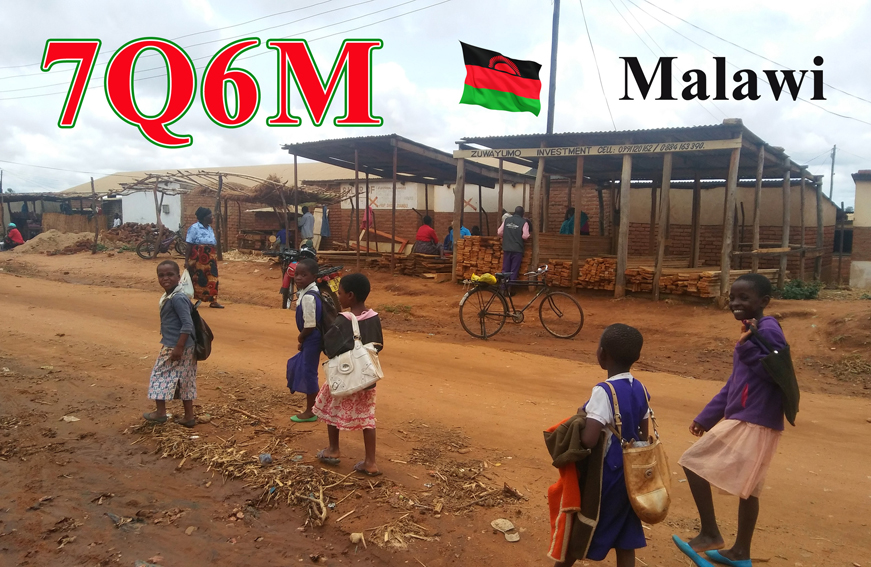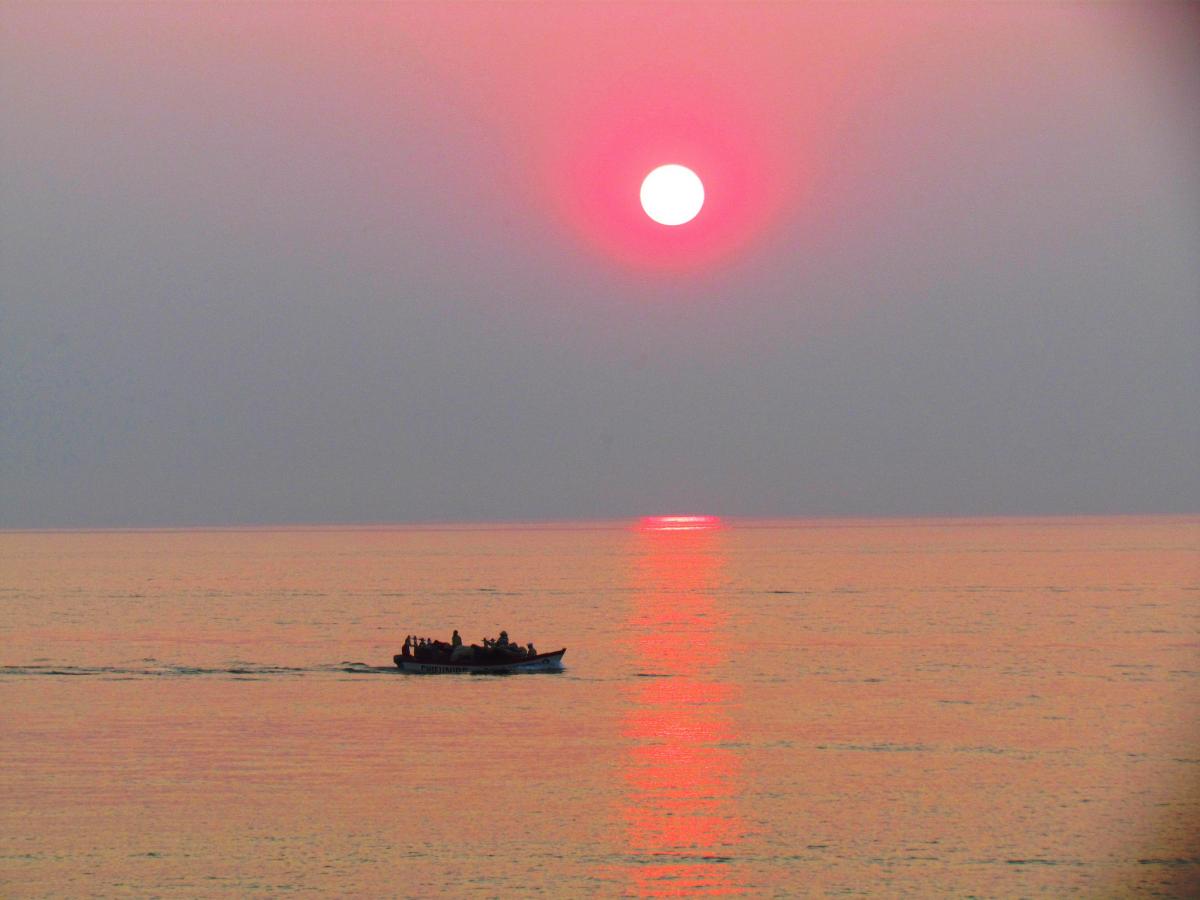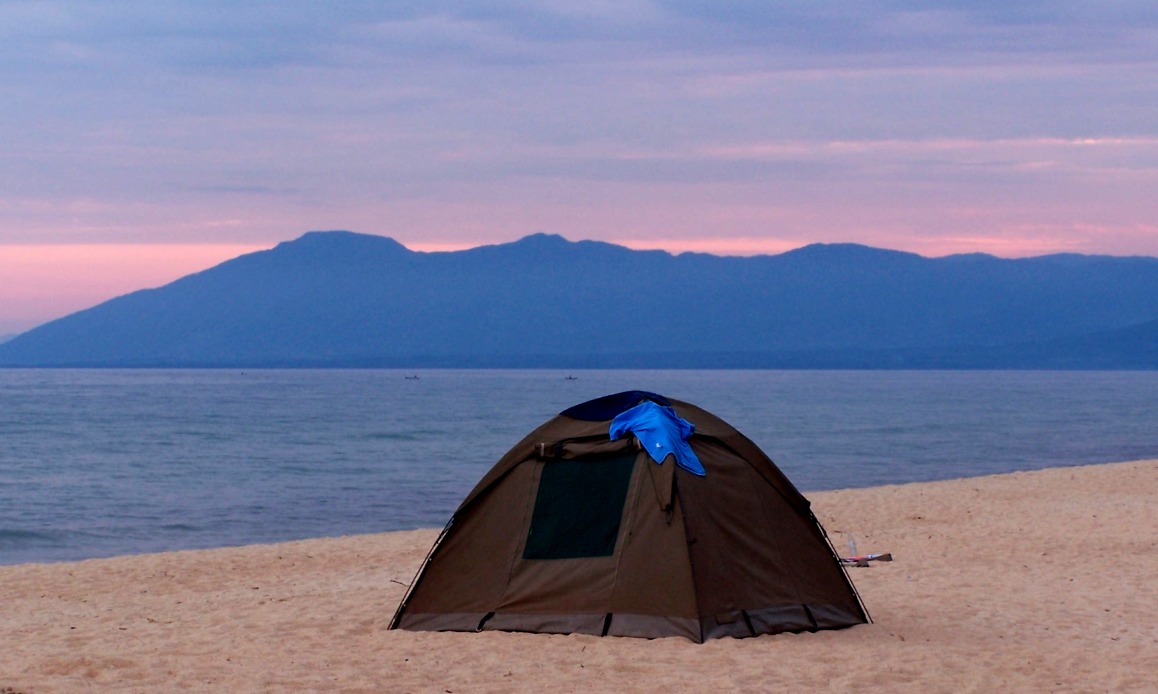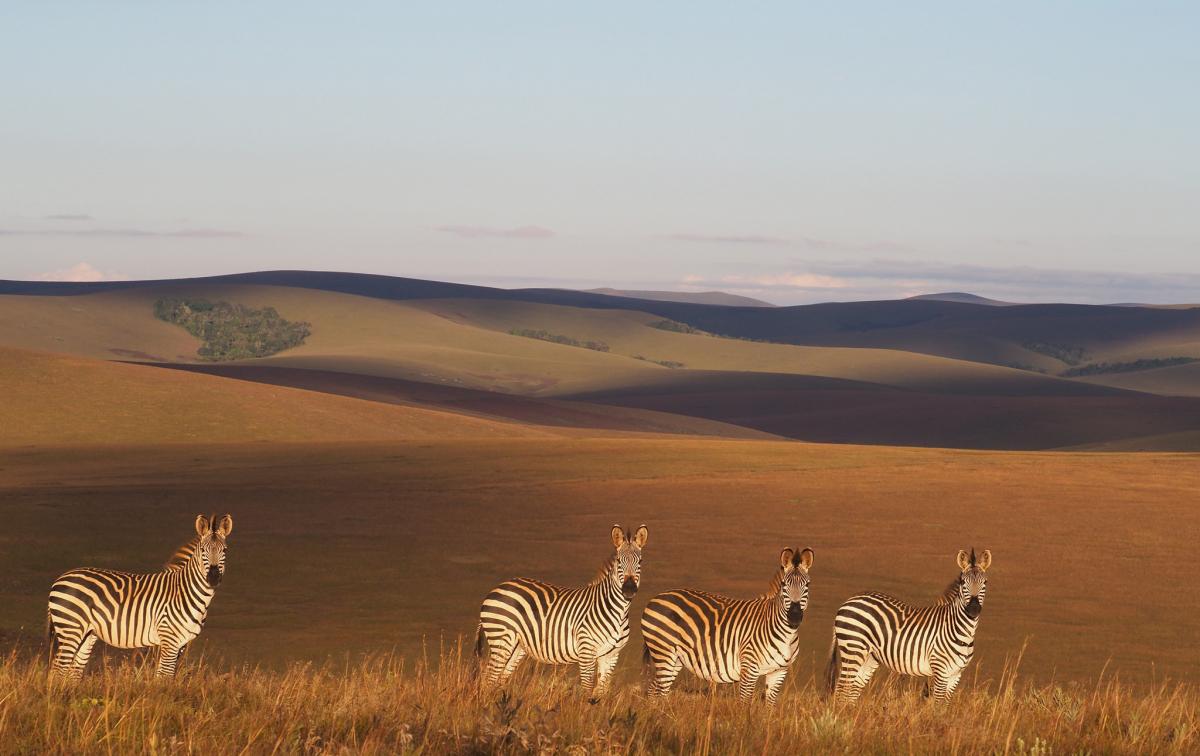Don, K6ZO is currently active again as 7Q6M from Malawi.
He will operate on 160 - 6m Bands, and 6m EME, including activity in CQ WW DX SSB and CW Contests.
Recent DX Spots 7Q6M
QSL via K6ZO.
Ads for direct QSL:
Don Jones 3130 Wisconsin Ave NW, #723 Washington DC 20016 USA.
Malawi is the epitome of Africa
“Unity and Freedom” is the motto of the Republic of Malawi, a small country in southeastern Africa. And it is hard to argue with this: the perception of the continent as a troubled and dysfunctional territory in no way applies to this corner of paradise. Although Malawi is on the list of the poorest countries in the world, it does not prevent it from being called the Swiss of Africa and famous for its beauty. Spacious meadows here are combined with high mountains, the purest water bodies - with tropical forests... This is exactly the Africa we imagined in our childhood. People here live peacefully and friendly, take care of the territory and preserve their culture.
 7Q6M Malawi. QSL Card.
7Q6M Malawi. QSL Card.
A small republic
Malawi is a presidential republic, part of the British Commonwealth as well as the Southern African Development Community. Since the country has long been dependent on Great Britain, the official language here remains English, as well as the Malawi language. Also, many tribes have their own dialects and tongues. The currency here is the Malawi kwacha, equal to about 1/15 of the US dollar. The exchange rate is extremely stable: for the last few years it practically did not change. The inhabitants treat their currency reverently: it is allowed to take it out in very limited quantities. At the same time, prices in Malawi are surprisingly low compared to other African countries, and even more so to Europe.
The population of the country is extremely diverse - it consists of a large number of tribes and ethnic groups. In the cities there are also representatives of India and Great Britain. The country's beliefs are also diverse: about half of the population practices local pagan cults, while the other half is divided between Christians and Muslims.
 Sunrise, Lake Malawi, Malawi. Boat load of people heading south at sunrise on Lake Malawi. Author - Allan Richkmann.
Sunrise, Lake Malawi, Malawi. Boat load of people heading south at sunrise on Lake Malawi. Author - Allan Richkmann.
Under the blazing sun
The belt to which Malawi belongs is subequatorial. The natural zone is characterized by two seasons: dry winters and rainy summers. The weather is always hot, and temperatures can reach up to 45°C and higher on the plains. The mountains are somewhat cooler, which explains the country's rich flora - the uplands dominate the country. Mountains and plateaus rise more than 1000 meters above sea level - at about this height is located the capital of the country, the city of Lilongwe. And the highest point - Mount Sapitwa - has a figure of 3002 meters.
Malawi 's poverty is largely due to the exhausting hot climate. Constant droughts now and then destroy crops, although the land is already difficult to call fertile. The only source of income is the production of tobacco, tea and cotton. At the same time, the country's population grows every year: families tend to have five or more children. As a result, people are starving: the country is characterized by a high percentage of child mortality and a short (about 50 years) life expectancy. The situation is aggravated by the large number of tropical infections prevalent here. As in most African countries, professional medical care is severely lacking.
 Sunset, Lake Malawi, Malawi. Author - Geof Wilson.
Sunset, Lake Malawi, Malawi. Author - Geof Wilson.
The “blazing” lake
Malawi is a landlocked country, but a good part of the country's border runs along Lake Nyasa. It is believed that the republic owes its name to Lake Nyasa: “Malawi means “blazing water” in the local language. The lake is the main natural wealth and pride of the country, as well as the main source of its resources. 90% of its energy is generated by hydroelectric power. Nyasa occupies 1/3 of the total area of the country - standing on the shore, it is hard to believe that it is not the sea in front of you... The lake is framed by both steep mountain cliffs and quite suitable for swimming and recreation beaches. The Shire River, the largest in the country, also originates from the lake.
Nyasa is part of the Great Rift Valley, stretching from the Red Sea itself. Deep depressions were formed where tectonic plates broke apart, one of which became a lake. Nyasa has a depth of 706 meters - this is the third place among all deep-water lakes of the earth. The ecosystem of the reservoir is incredibly diverse and interesting, with 90% of the inhabitants being endemic. Most of the aquarium fish we know are native to this area. Exporting this commodity is a major source of business for Malawi.
History and culture of the country
The first inhabitants appeared in these places as early as the Neolithic Age. In the first millennium A.D., several tribes settled here and were engaged in gathering, hunting and iron mining. In the fourteenth century, a political association emerged in the territory, which was active in the slave trade with Portugal. Due to intensive exchanges as well as frequent migrations, at the beginning of the nineteenth century the country had already 12 ethnic groups.
Around this time, British colonization of the territory began, as a result of which the country was renamed Nyasaland. The locals did not like the situation: there were constant uprisings and liberation movements. Malawi finally gained independence in 1964. Conflicts between the parties continued for some time afterward, but today Malawi is considered one of the most peaceful African countries.
Because of its ethnic diversity, Malawi 's culture is very heterogeneous and interesting. One of the brightest areas is musical, and this is the focus of the famous Lake of Stars festival, held every year in September. At the festival you can hear songs of different countries and cultures. The Second World War, during which Malawi was visited by soldiers from different countries, also had its imprint on music. Among the handicraft arts, batik painting techniques are common, as well as wood carving, basketry and furniture weaving.
 Malawi. Author - Stefan Schmid.
Malawi. Author - Stefan Schmid.
Animal and plant life
In Malawi you can find all the animals you are used to seeing in pictures of books about Africa. There are zebras, gnu antelope, buffalo, rhinoceros, various big cats... Hippos and crocodiles inhabit water bodies in large numbers. The largest animal that lives in Malawi is the African elephant. The country also boasts a huge number of birds - there are more than a hundred species of tropical birds. The variety of fish and other aquatic life attracts fans of diving and sport fishing. Insects are one of the main dangers for residents and visitors of Malawi - among them there are dangerous and poisonous ones. Malaria mosquitoes, termites and scorpions are commonplace in the forests and savannahs.
As for flora, Malawi is most famous for orchids, of which there are almost 400 species. Many other wild flowers grow on the mountain slopes - gladiolus, immortelle, aloe... Below 1500 meters above sea level there are mixed forests with predominant conifers, in the savannahs tropical plants - fruit palms, baobabs, acacia trees... Unfortunately, frequent fires, as well as felling of trees cause huge damage to the ecology of the country. The rate of forest loss is the highest in southern Africa.
Places worth visiting
Malawi has two UNESCO sites - the southern part of Lake Nyasa (where the national park is located), and the so-called Chongoni rock art sites. These are more than a hundred granite formations preserved in central Malawi and contain Neolithic rock paintings. The national parks are remarkable in that visitors here are allowed to travel on foot, not just in a closed vehicle as in many other African countries. Wild animals that live here are not dangerous for humans, if you follow some rules. In some parks (for example, in Lilongwe) predators are kept in cages on excursion trails. The parks themselves are small, but well protected and kept clean.
The capital of the country - Lilongwe - is of little tourist interest. There are a lot of new urbanistic buildings here, and the old city can hardly be called beautiful. Malawian atmosphere to a greater extent can boast the city of Nkata Bay, a resort, but also with a national flavor. Here is concentrated a large number of bustling markets and establishments of local cuisine. Chizumulu and Likoma, located on the lake, are considered to be the “paradise islands” of the country - dense vegetation allows visitors to temporarily shelter from the hot sun. However, natural resources are in fact the backbone of Malawi, and you don't have to go far to find them.

